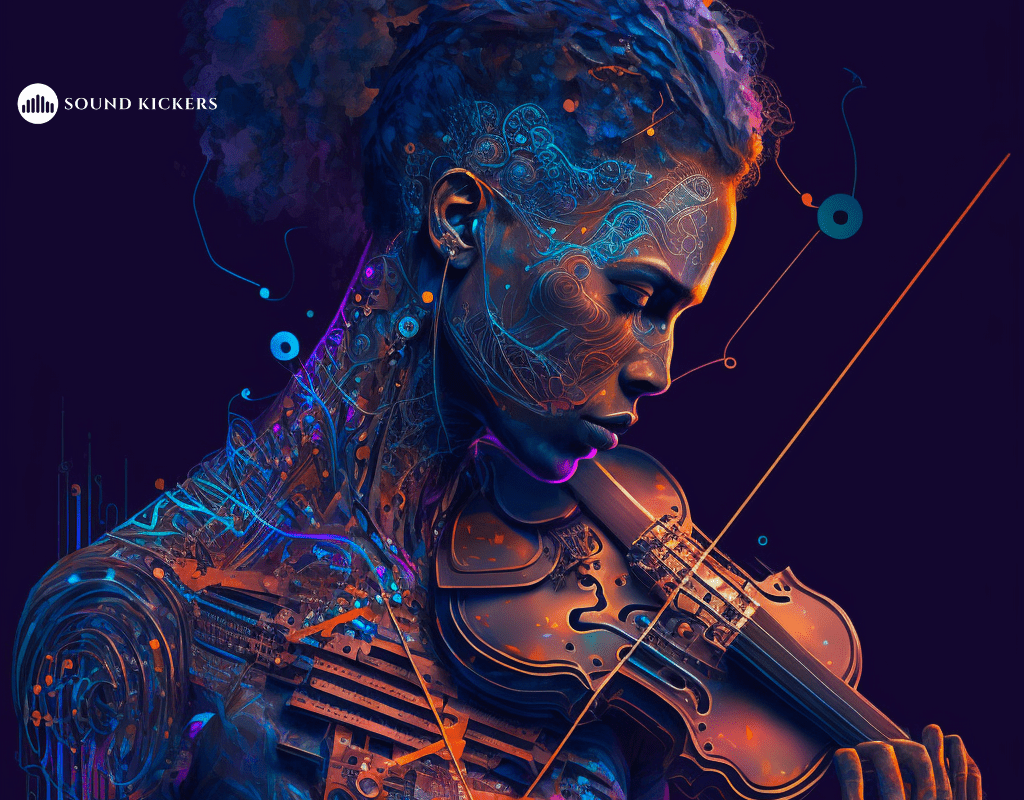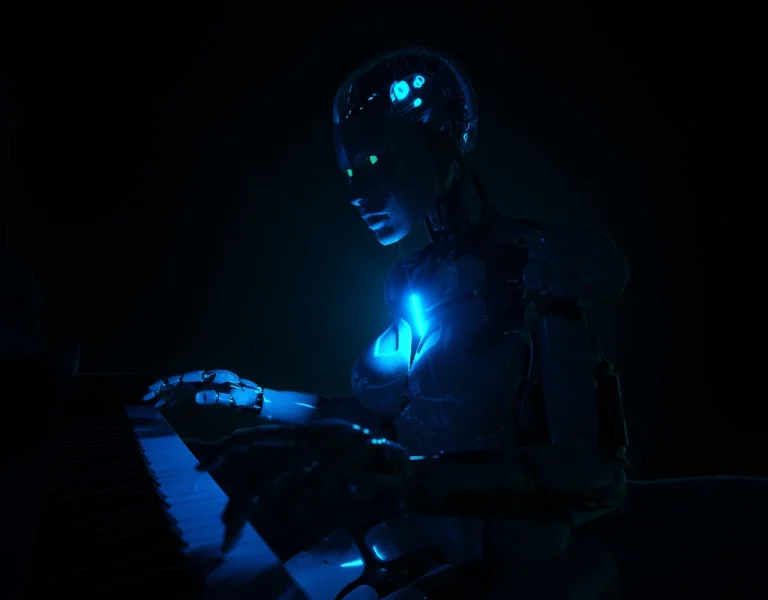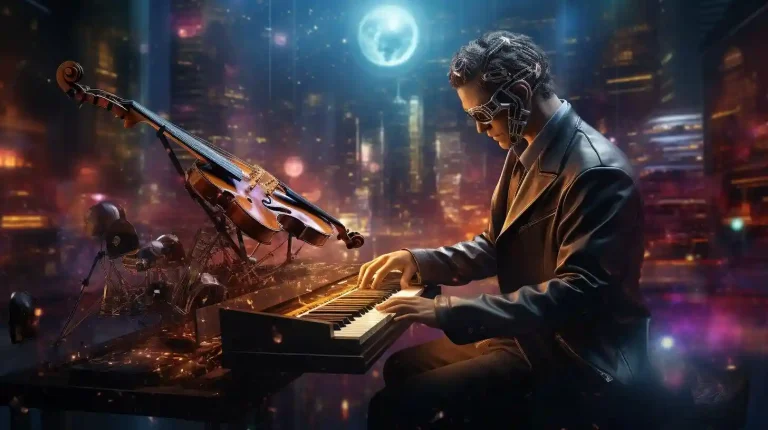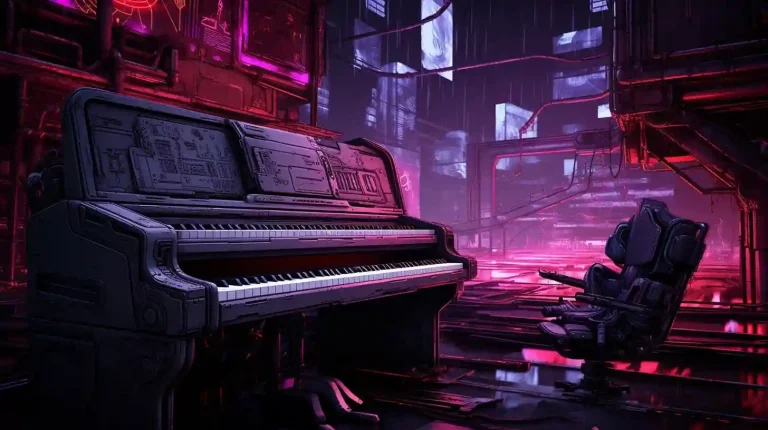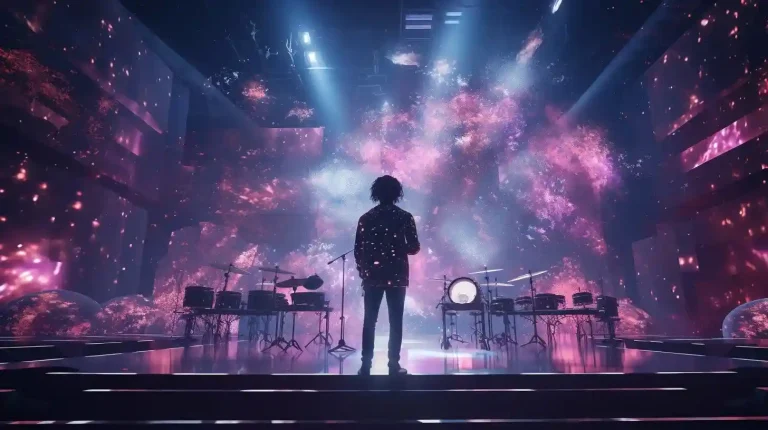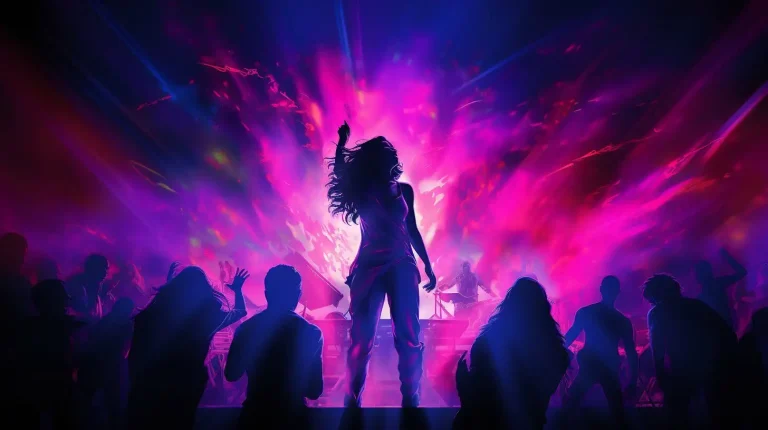Can Artificial Intelligence Replace Musicians?
Artificial intelligence has come a long way since its inception.
As they continue to develop alarming semblance to living, self-conscious beings, the collective human mind has wondered about our future in various industries.
Robots have eliminated the need for humans in manufacturing, but what about creative fields?
Can artificial intelligence replace musicians?
It’s safe to say that, for the foreseeable future, AI will not replace musicians.
While AI is highly capable of storing information and regurgitating it in a format that seems self-aware, they need more creativity to produce music for human enjoyment.
For now, the creativity of AI concerning musical production is dubious at best, but what advances has AI made in the field of music, and how is artificial intelligence likely to change the face of the music industry?
The Artificial Intelligence Debate
The very concept that man can create something self-aware is a massive can of worms in and of itself.
Artificial intelligence, by definition, is intelligence demonstrated by machines, and that is, a machine capable of perceiving, inferring, and synthesizing information.
While AI has already developed an incredible aptitude for learning by synthesizing data, the emotional connection is tenuous at best.
Defenders of AI’s consciousness, as it were, point to instances like this video, which suggests that AI is capable of making judgments and forming opinions on different subjects.
On the flip side, others argue that AI is simply regurgitating information from its vast network of sources in a way that makes sense.
About music, the debate of whether AI can ever become genuinely self-aware leads to another interesting question: can AI demonstrate creativity?
If so, the music field would suddenly become a soundscape dominated by artificial intelligence overnight, like a dystopian nightmare.
After all, if AI could truly demonstrate individual and creative elements, then they could produce music at a rate much superior to humans and, in the interest of the analogy, at a much higher quality.
What Can AI Do in Music?
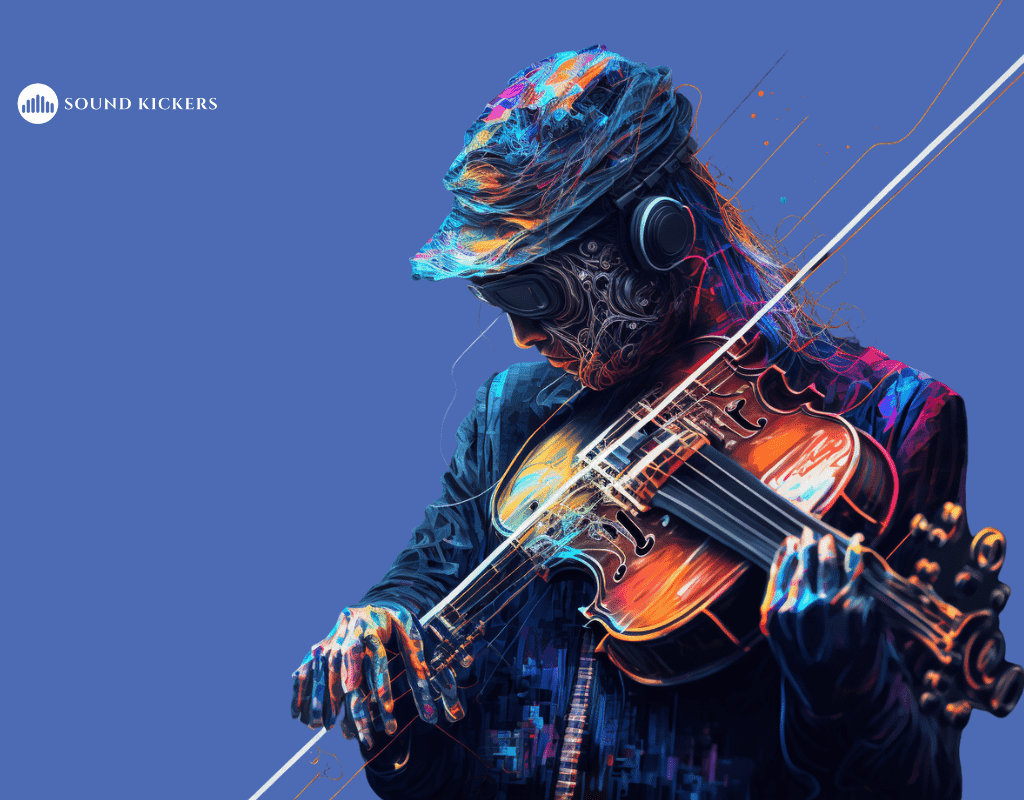
Before considering the idea that AI will overtake the music industry, let’s look at what AI has already accomplished and, under these discoveries, what AI is likely to accomplish soon.
AI can synthesize data from different artists, styles, and genres to provide instrumentation for a song or album.
In layman’s terms, it can put together a musical accompaniment in the style of The Beatles or whatever the user selects at a moment’s notice.
Some AI-infused music is already out there, and you might not even realize it. For example, the song Break Free features a soundtrack composed by AI.
The lyrics, written by Taryn Southern, have the amusing motif of breaking free from constraints to experience an ‘other’ world.
That breakthrough was over five years ago, and you would hardly know that humans didn’t make the backing track for the song.
Today, AI sees a lot of use in helping up-and-coming artists get their feet in the shallow end of the musical pool.
AI music generation platforms like Amper Music and AIVA can instantly compose soundtracks for ads, video games, movies, and so much more.
Of course, with any of these platforms, you, the user, need to select a style of music, edit the soundtrack, or choose a particular song you want to incorporate.
To recap, AI has achieved the following in the music industry:
- Producing music in a particular style or genre
- Providing soundtracks for artists
Can Artificial Intelligence Replace Musicians?
What’s clear from all of these is that AI is not doing the hard work.
Sure, AI is synthesizing information to form a product that we describe as ‘creative,’ but humans are still driving the process at its core.
With the song Break Free, for example, it’s not the soundtrack itself that is necessarily a product of creativity but the lyrical addition of Southern.
On AI music generation platforms, there’s no creative ‘thinking’ behind the music that the AI chooses; it’s still a very observable input and output: the user inputs a style, song, or genre, and the AI provides an outcome based on their preferences.
It’s an impressive advance in technology, but it’s hard for the skeptic to see anything other than a program doing what it’s told.
It sounds like this rock music composed entirely by AIVA is an excellent springboard for budding musicians, but that’s all they are: a template.
The AI follows the exact general instructions:
- Wait for user input.
- Synthesize data from user input.
- Provide output in concordance with the rules of music theory.
When you boil down music to its core elements, it’s a poetic kind of math with its rules and boundaries determining what makes it beautiful.
Musicians use keys, harmonies, and a slue of different instrument classes—percussion, strings, woodwind, keyboard, brass—to create what we know as music.
AI can muddle together these different instruments and sounds according to the rules already pre-founded by generations of human musicians and, in doing so, put together some semblance of creativity.
There’s a significant difference between a modern-day classical composer reviewing the greats and putting together a piece of their own and an AI synthesizing data from Bach and Beethoven to emulate a conflagration of notes that matches their style.
AI: An Accompaniment, Not a Replacement
As far as AI has progressed to date, musicians are safe from the takeover of artificial intelligence.
AI in music is extremely useful, not hostile.
AI can be a great accompaniment to human ideas, aiding them in the creative process and providing a base layer for humans to build their ideas.
It’s impressive what AI can accomplish with very little input—but that’s precisely the caveat: AI requires feedback, from which it pours through data and provides an answer.
There’s no creativity there, and well, at least not yet.
Final Thoughts
AI has advanced significantly since it first conceptualized that machines could demonstrate self-awareness.
For now, the music industry has remained largely untouched by AI’s influence, except in AI-generated soundtracks, which artists may use as a springboard for their ideas.
References
https://ambii.io/will-ai-replace-musicians-the-future-of-music-industry/

